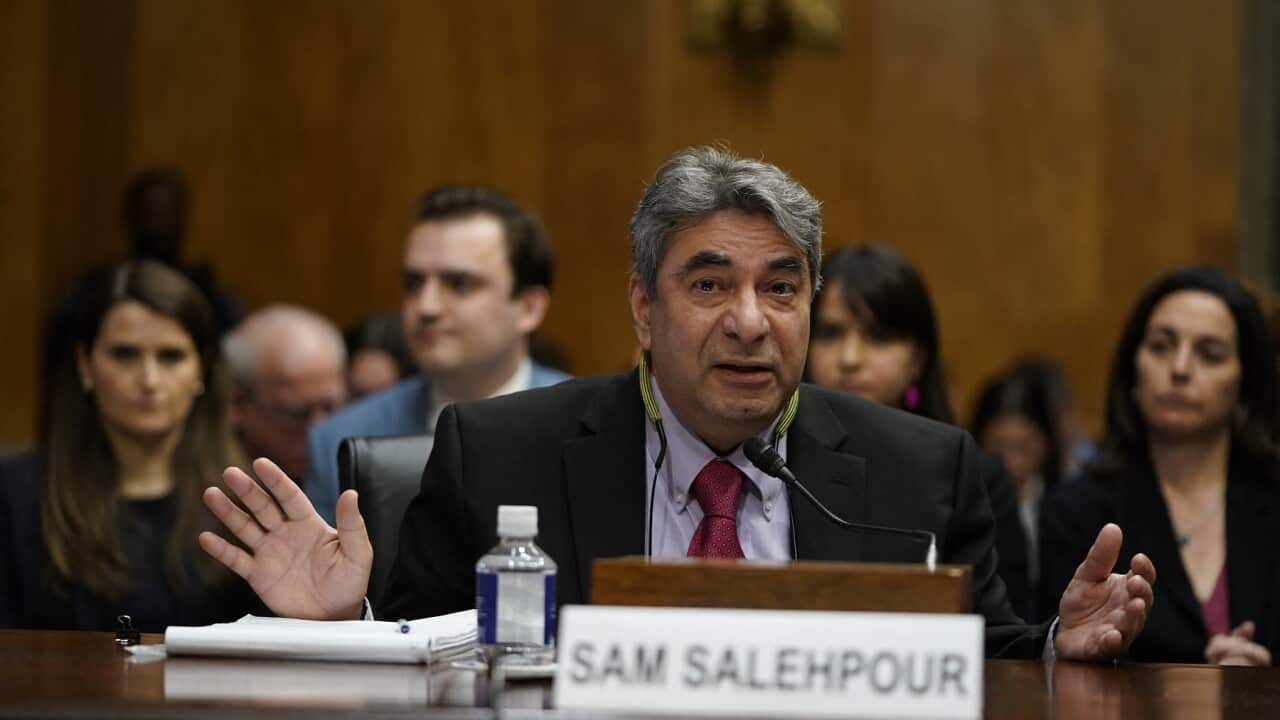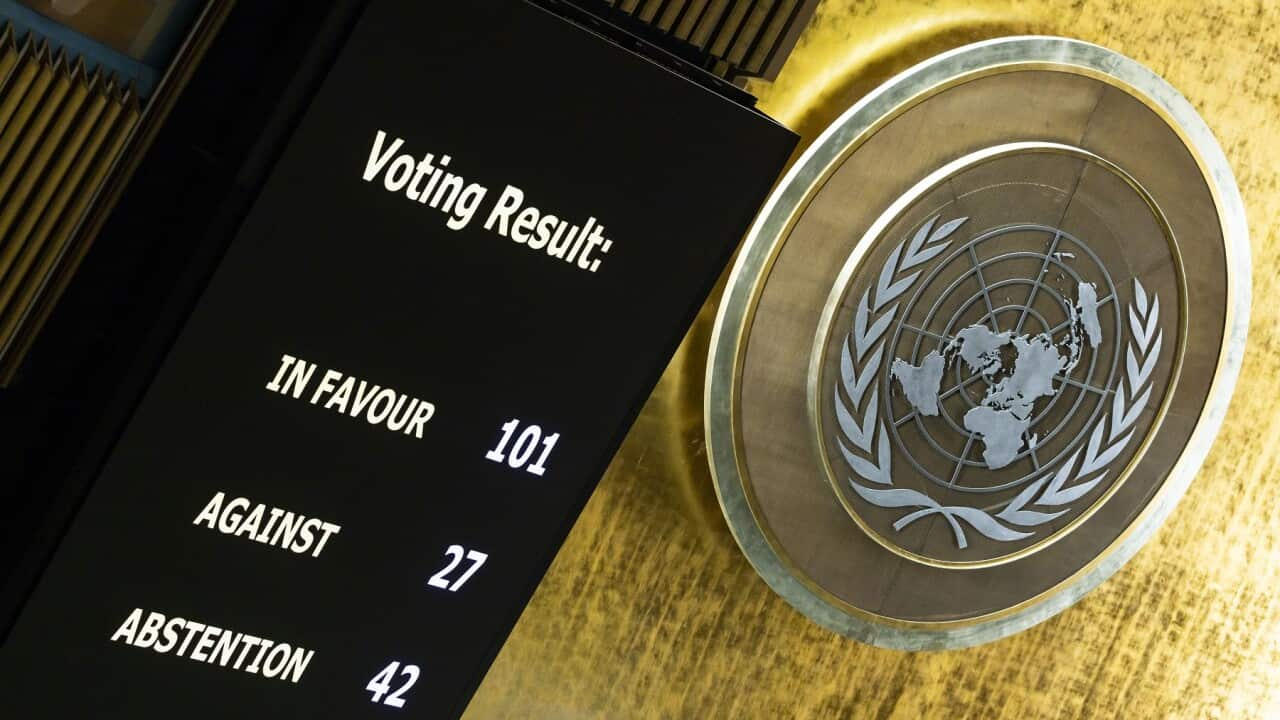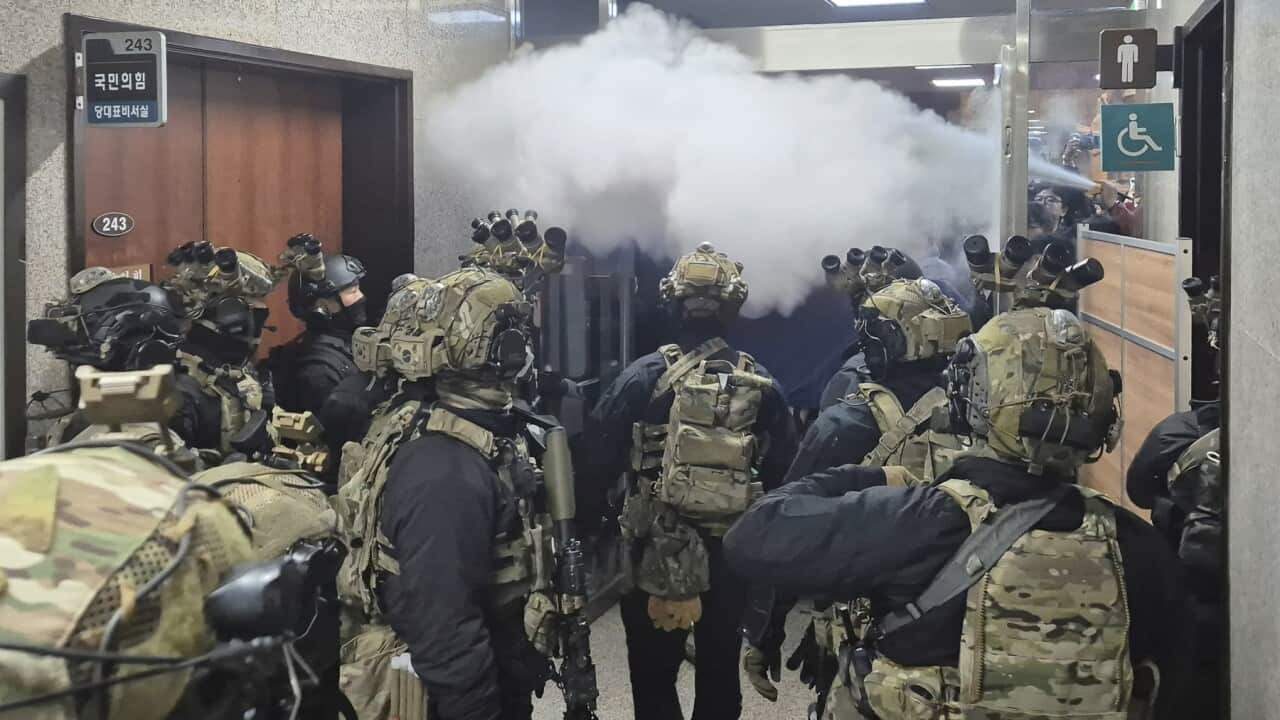TRANSCRIPT:
The United States Congress is investigating safety at aircraft manufacturer Boeing after a series of incidents and whistleblower complaints.
Sam Salehpour is employed as a quality engineer at Boeing and has worked there for 17 years.
He told a congressional committee he has serious safety concerns about two of Boeing's biggest planes, the 787 Dreamliner and the 777.
"I do not want to see 787 or 777 crash. I have serious concerns about the safety of the 787 and 777 aircraft, and I'm willing to take on professional risk to talk about them."
He told the hearing he raised concerns repeatedly over three years, beginning in 2020, but says he was ignored, shunned and physically threatened.
"I literally saw people jumping on the pieces of the airplane to get them to align. I call it the Tarzan effect, among other improper methods. Again, I raised concerns internally. I was sidelined. I was told to shut up. I received physical threats. My boss said I would have killed someone who said what you said in the meeting."
Boeing representatives didn't attend the hearing and the company has disputed Mr Salehpour's allegations.
The Federal Aviation Administration [[FAA]] says it is investigating his claims.
Boeing is facing renewed scrutiny over the safety of its aircraft after part of the body of a 737 Max 9 jet broke off after take-off in January.
A preliminary investigation by the National Transportation Safety Board found that bolts were missing on the piece that blew off the Alaska Airlines plane.
Boeing previously had to deal with the grounding of its 737 Max 8 model after deadly crashes in Indonesia and Ethiopia.
Former Boeing manager Ed Pierson, who is now the executive director for the Foundation for Aviation Safety, told the hearing that unless action is taken and leaders held accountable, every person stepping aboard a Boeing airplane is at risk.
"Passengers shouldn't have to rely on whistleblowers to provide the truth. They should be able to get on airplanes and not have to worry about what model it is, whether it was designed and manufactured to the highest of standards, whether the airline is operating and maintaining it properly, or whether government agencies are providing proper oversight."
Mr Pierson says some of Boeing's claims about safety are simply untrue.
"Boeing routinely states that their airplanes meet or exceed all safety standards. This is untrue and misrepresents the safety of the airplanes. The company illegally removed thousands of quality control inspections on individual airplanes without the FAA's knowledge and without the knowledge of the airlines. Although many of these inspections have been reinstated, hundreds of airplanes have left Boeing factories without those thousands of inspections."
In a statement, Boeing says it "continues to put safety and quality above all else and shares information transparently with its regulator, customers and other stakeholders".
A member of the congressional committee, Democrat Senator Tammy Duckworth from Illinois, says Boeing needs to be held to account for its actions rather than its commitments.
"We need to look at what Boeing does, not just what it says it’s doing. Boeing says it prioritises safety above all else. But when the expert panel asked Boeing to produce evidence of this commitment, the evidence that Boeing provided, and I quote - 'did not provide objective evidence of a foundational commitment to safety that matched Boeing's descriptions of that objective' - end quote. That should be shocking, but based on some of Boeing's recent actions, frankly, it's not."













